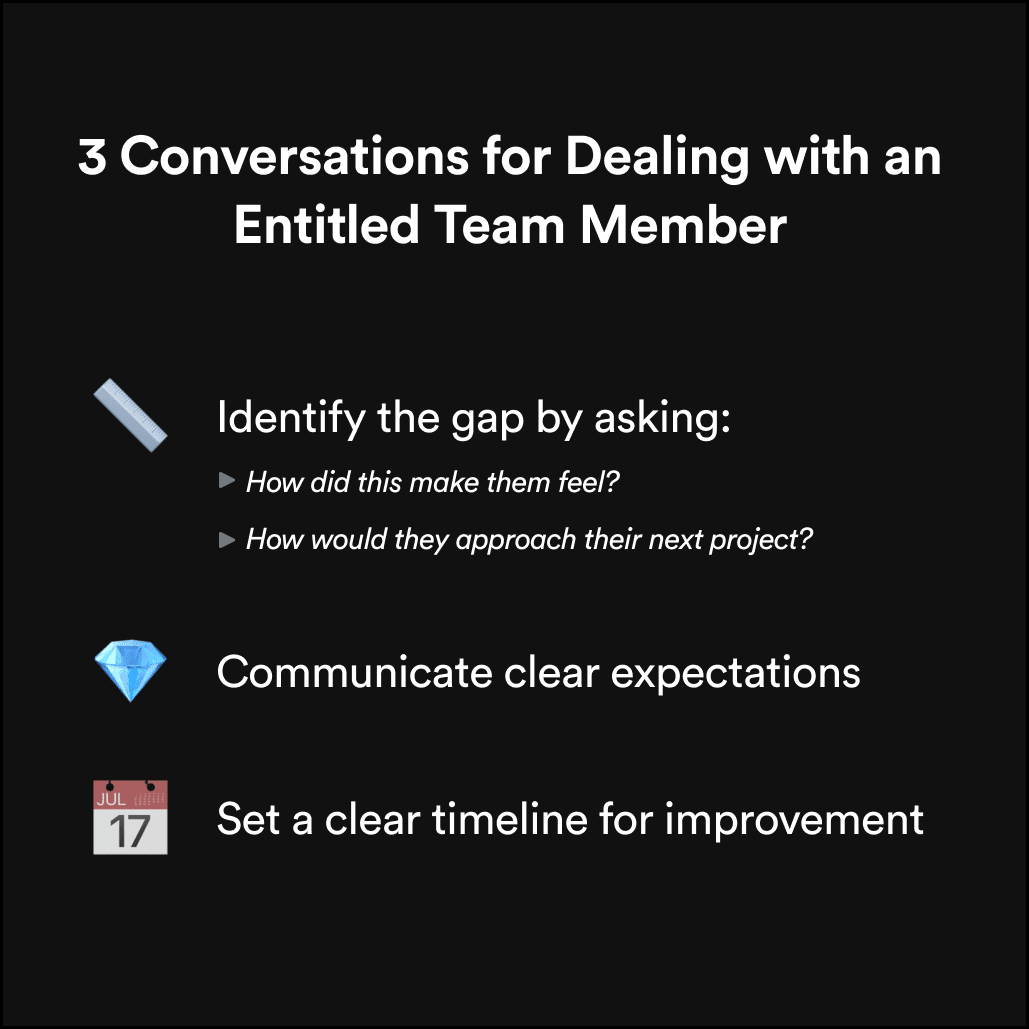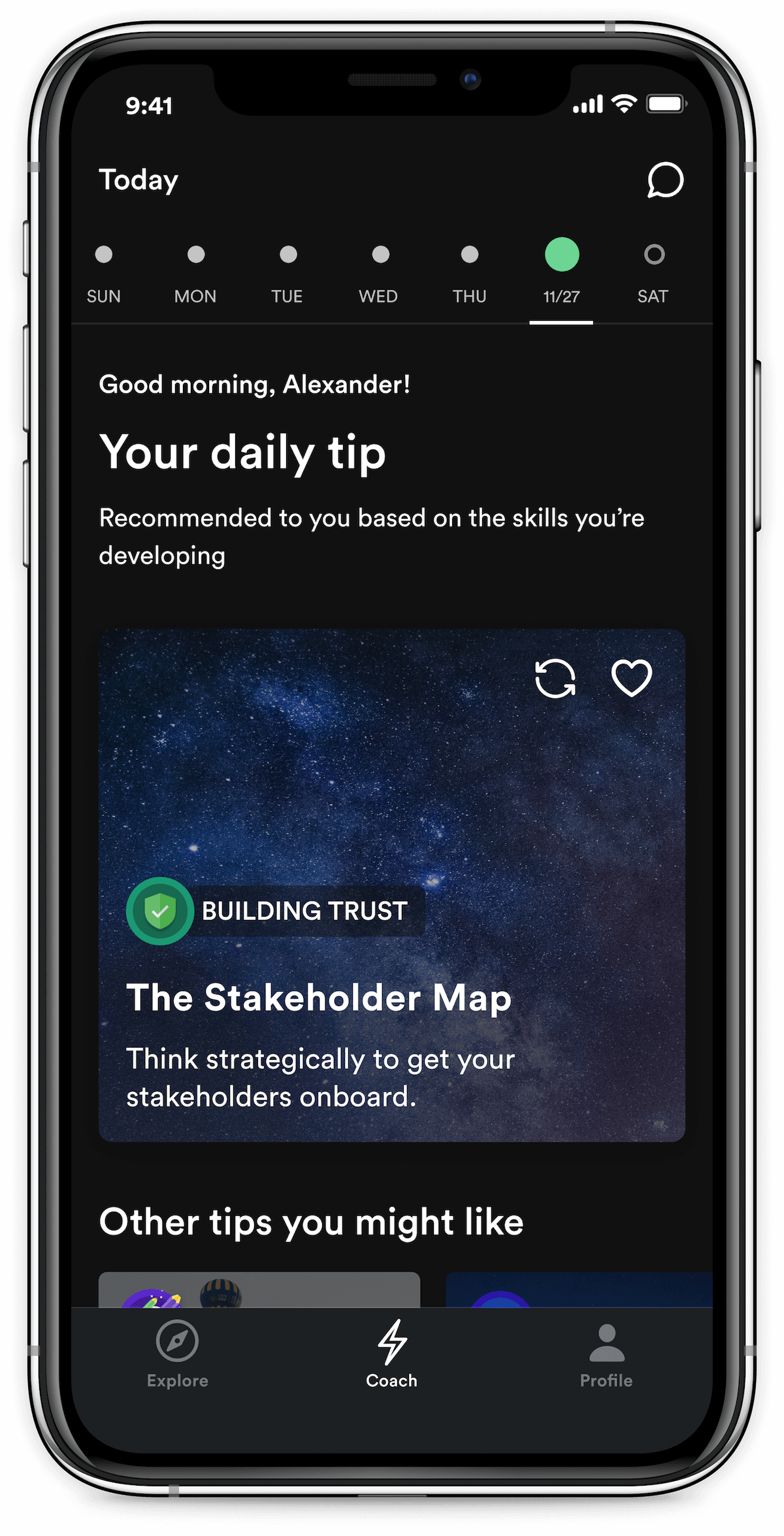3 Conversations for Dealing with an Entitled Team Member
What to do when someone wants more than they deserve.

Inspired by:
Jeff Butler, Author of "The Authentic Workplace and The Key To The New You"

Recognizing entitlement
When your direct report behaves with a sense of entitlement it can affect both the employee’s performance and the entire team’s morale. So what can you do as a manager?
Entitlement in the workplace wears many masks 🎭 it’s important to detect the symptoms early on:
• An employee strongly believes they’re due a raise or promotion because their first 2 months on the job went so well. That’s entitlement. • Phrases like, “I went ahead and did that work for you” are an indicator of entitlement.
3 conversations to deal with entitlement
Unless you’re explicit about the job responsibilities and norms in your organization, this behavior won’t change by itself. So once you’ve spotted the entitled behavior, here are 3 conversations that can help:
Conversation 1: Identify the gap by asking relevant questions 📏 Conversation 2: Communicate clear expectations 💎 Conversation 3: Set a clear timeline for improvement 📅
Let’s dive in!
1. Identify the gap by asking relevant questions 📏
You’ve noticed that you and your direct report’s expectations don’t match up. Write a couple of relevant questions and set up a 1-1 to talk with them.
For example, if last week your team member hasn’t delivered the project within the deadline and didn’t blink an eye, ask questions such as • How did this make them feel? • Do they need help with training? • How would they approach their next project?
2. Communicate clear expectations 💎
Perceptions are always tricky. Though you might feel there is entitled behavior at play, your employee might perceive it differently.
Ask them a question like “How do you believe your role is contributing to our team’s goals?”
Once you have listened and reflected on their answers, share your expectations for their job and connect them to the company’s goals.
For example: If your direct report believes they should get the Senior title within their first 2 months of employment, explain how the promotions are structured in your company.
3. Set a clear timeline for improvement 📅
Set up touchpoints to check-in on progress and share feedback (e.g. having 1-1 meetings twice a month) and set clear milestones they need to work towards.
Make it clear and reiterate what the expected standards are, both in terms of performance and behavioral changes.
Communication is the key 🔑
When there is a misalignment on expectations, your goal as a manager should be to have a clear understanding of how you can minimize this gap.
You can then combat this through complete transparency about the effort, performance, and behaviors you expect. For example, “I expect that you are handling 3 Technical Support tickets per hour in the next three months”. This leaves less room for creative interpretation of what the job expectations really are.
We hope you found these three conversations helpful!

Become a world-class leader in two minutes a day